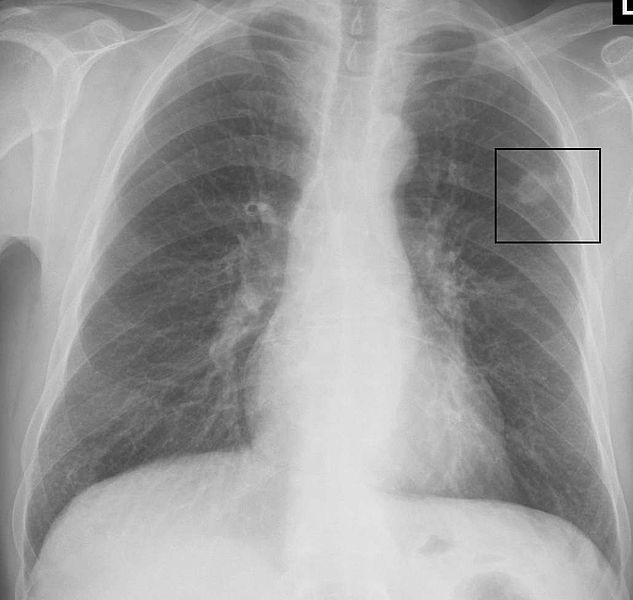Twenty Six Genes Could Help Identify Aggressive Lung Cancer

Among cancers, lung cancer is especially troublesome because it can easily metastasize and move to other parts of the body, making effective treatment difficult and the chance of survival low. Cancer cells use every trick in the book in an attempt to survive. Researchers have known for a while that cancer cells randomly turn on genes that are not usually expressed in the organ or tissue that they are from, in an attempt to gain survival advantage.
Now researchers from institutes in France and the University of Michigan have found a collection of genes that are not usually expressed in lung tissue, but can be expressed by lung cancer cells and signify an aggressive form of the disease. For instance, lung cancer cells can express genes that are expressed in the placenta or genes, which usually have their expression restricted to cells that help in the formation of sperm cells. Expression of these genes is proposed to give an advantage to lung cancer cells and help them become aggressive and more likely to leave a primary tumor in the lung and spread throughout the body.
For the study, the scientists gathered samples from 293 early-stage lung tumors and analyzed the expression of every known gene in each sample. The data was then compared to the clinical records of the patients as well as their survival rates. The researchers found 26 genes, not normally expressed in lung tissue, that were expressed only in the tumors of individuals who had the most aggressive form of the disease.
Primary among the genes found to signify the cancer's aggressive nature were genes in embryonic stem cells, or germ cells that develop into sperm or eggs. Both stem cells and germ cells are highly potent in proliferation compared to other cells in the body. According to the findings, aggressive cancer cells seemed to be taking on gene expression characteristics of stem cells. Additional findings of genes being expressed showed that genes that would normally call on the immune system to attack were underregulated, allowing the cancer cells to evade the immune system and proliferate under the radar.
The researchers hope that this finding will lead to better diagnostic tests for earlier detection of aggressive lung cancers as well as a better understanding of the underlying mechanisms of such aggressive cancers. Lung cancer is a major case of premature death in the U.S. The Centers for Disease Control and Prevention reported that in 2009, 205,974 Americans were diagnosed with lung cancer, and 158,081 people died from it.
Source: Rousseaux S, Debernardi A, Jacquiau B. Ectopic Activation of Germline and Placental Genes Identifies Aggressive Metastasis-Prone Lung Cancers. Science Translational Medicine. 2013.



























